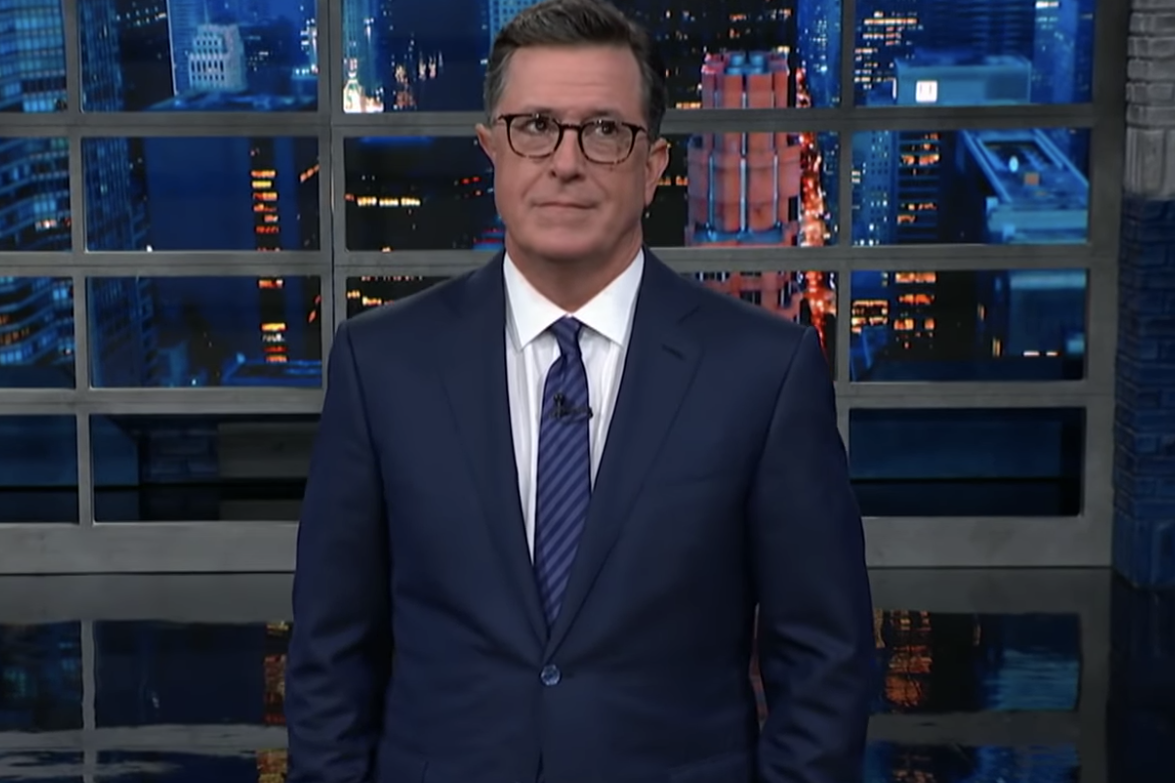'OK boomer' is a powerful tool. But you have to use it sparingly
One radio host in New York claimed that 'boomer' in this context is 'the N-word of ageism'


The phrase “OK boomer" is having a moment. It’s been part of online parlance for a while, but it's become sufficiently mainstream in the last couple of weeks that it's suddenly become the subject of general debate. I’m not sure exactly how it happened – it seems the New York Times planted the seed, which then grew into a capacious plant when Bob Lonsberry, a radio host in upstate New York, claimed that “boomer” was “the N-word of ageism”. The internet (and Late Show host Stephen Colbert) were quick to accurately point out that this comparison is baseless and that “boomer” (as tweeted by Dictionary.com) is nothing more than “an informal noun referring to a person born during a baby boom, especially one born in the US between 1946 and 1965”.
So why do people — specifically, millennials and Gen-Z'ers — love using the phrase so much?
Well, the general consensus on Twitter is that “OK boomer” is what you have left when you try arguing with someone using facts and logic but can’t get through to them. “OK boomer” is a way to express your frustration while also partly admitting defeat: the generational divide is just too deep, we’ll never see eye to eye, your life experiences are so different from mine and you are so unwilling to put yourself in my shoes that this conversation is doomed to lead nowhere.
“OK boomer” is also just the right amount of dismissive, and yes, it does feel good to be dismissive of yet another person castigating young people for – let’s see: buying too many avocados, not being able to afford to buy property by the age of 30, eating lunch at their desks, and killing who knows how many industries from cereal to canned tuna. When you're accused of that many crimes just for being young, "OK boomer" is a cathartic battle-cry.
Indeed, once you start resorting to “OK boomer” as a rhetorical device, it’s hard to stop. #MeToo is a witch hunt? OK boomer! Climate change isn’t real? OK boomer! Referring to people by their preferred pronouns is becoming a bit absurd? OK boomer! PC culture has ruined comedy? OK! BOOMER!
Needless to say, it’s incredibly frustrating for millennials and Gen Z'ers to be lectured by someone from the boomer generation, who enjoyed a thriving economy, had an easier time buying homes as well as better chances of finding and keeping their jobs – and somehow tricked themselves into believing this was largely the result of superior life skills rather than the good fortune of being born at the right time in history. So go ahead, treat yourself to an “OK boomer” every time you truly feel the need to. You’ve earned it by being hit by (depending on whether you’re a millennial or a Gen Z'er) a crippling global recession, or some of the scariest moments in contemporary politics happening in your formative years.

Yet, like all powerful medicine, “OK boomer” is best used sparingly.
Look, I’m a 28-year-old feminist in 2019. I have been witness to countless aggravating conversations involving people from an older generation. At times, I have chosen to engage, and at other times, I have chosen to keep sipping my wine. (This is always an option, by the way, and it’s worth remembering that you have a right to choose whether or not you want to take on the labour of intergenerational outreach.)
Whenever I have chosen to engage, I have more often left the conversation feeling defeated than feeling as though my conversation partners and I had experienced a breakthrough. It’s not necessarily that I’m trying to change other people’s minds, but I do like feeling as though I’ve been heard – and sadly, that’s not always the case, even when I make a conscious effort to hear and acknowledge my counterparts.
And yet, over time, I've realized that I have been slowly winning the (rhetorical) war. Some of my relatives, for example, have told me that our conversations have caused them to change their views on topics such as feminism or immigration. I was shocked when they told me so, because, well, our conversations didn’t feel as though they’d have that effect while they were happening.
But perhaps that’s how change is achieved: slowly yet not always patiently, through difficult conversations that may or may not end in an abrupt change of topic in the interest of all parties. Yes, the generational gap is so wide that it sometimes feels impossible to cross – but when it does get crossed, it’s a hopeful, heartwarming experience. It might take time, and it might not immediately pay dividends, but those conversations sometimes pay off in the most surprising ways.
I will keep “OK boomer” near and dear to my heart, but I also won’t forget that progress can masquerade as frustration before revealing itself. And that's something important for all of us to bear in mind.
Join our commenting forum
Join thought-provoking conversations, follow other Independent readers and see their replies
Comments
Bookmark popover
Removed from bookmarks